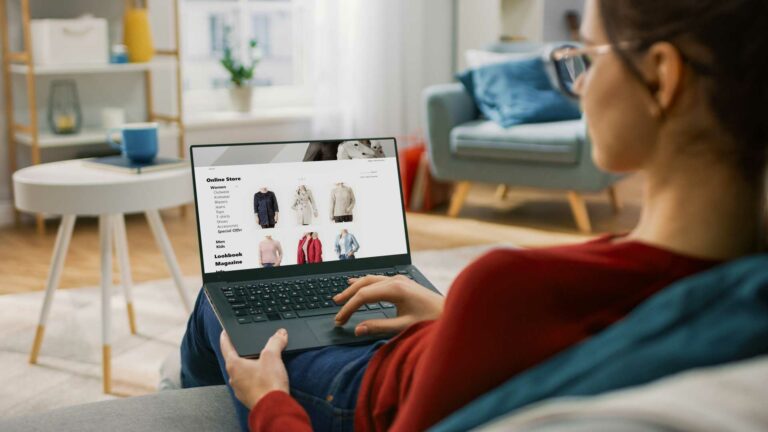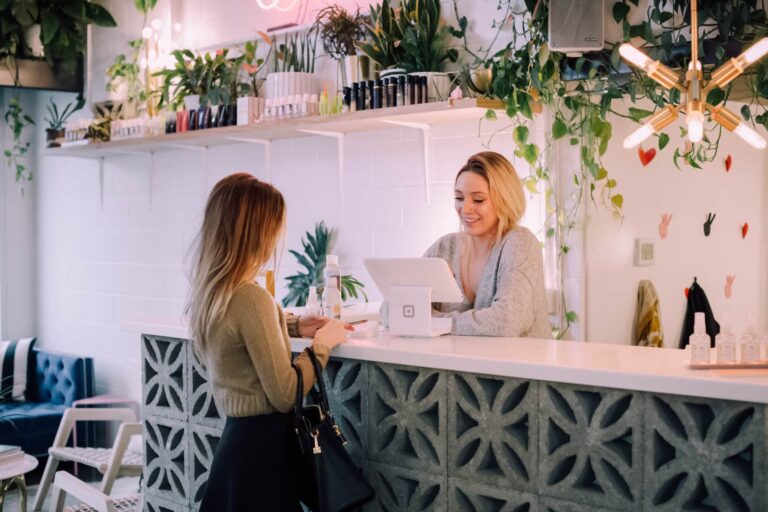What is Clienteling in retail and why does it matter in 2022?
Clienteling is a strategy or tool retailers use to build long-term connections with consumers based on their behaviours and preferences. The data they collect helps retail staff provide a more personal and informed customer experience. Clienteling adds a highly personal touch to a customer’s buying experience.
It’s important to note, however, that clienteling is not the same as customer service. Although customer service is vital for any business, it doesn’t provide the same level of detailed customer experience as clienteling.
So how does Clienteling work?
The primary function of clienteling is to collect customer data and use the information to create better shopping experiences. If a customer enters a store that doesn’t practice clienteling, the sales agent will just assist them, and that’s all.
However, a store with a clienteling strategy will serve the client differently. When the customer enters, the sales agent will check their profile and see their preferences based on their purchase history. Using the data, the agent will assist the client in finding their preferred product. No guesswork! As a result, the client will feel appreciated and special, prompting them to return.
Types of client data
Point-of-sale (POS)
The data indicates what the shopper has bought and if they are happy with the product. The client’s shopping experience will show if they liked your retail store.
Personally Identifiable Information (PII)
The data in PII includes the buyer’s address, phone number, name, and email. There can also be information on birthdays or anniversaries and how customers prefer to shop, either online or in-store.
Ecommerce Data
This data shows what a customer used to purchase a product online. It is easier to record what a client bought online but more challenging to track what they bought in-store. However, it isn’t easy to reconcile the two because buyers don’t state whether they are an in-store or online shopper.
Benefits of Clientelling in 2022
The retail landscape has changed irrevocably over the past few years. Clienteling presents new opportunities for retail stores to improve customers’ shopping experiences.
Here’s how clienteling can benefit your brand:
Informed Store Assistants
One significant benefit of clienteling is that it improves the overall knowledge of your store attendants. Sellers who know the client’s buying habits are aware of different products that can be helpful to the customer, which means that sales staff can anticipate the client’s needs. However, agents should be trained on how to use the client’s data. Otherwise, they may not promote or help improve the customer’s experience.
For instance, a well-informed seller will notice what is lacking in a particular customer’s shopping list. They will know precisely how to approach them as the customer’s information is at their fingertips. Store owners should share the data with every employee to enhance overall customer care services.
Build Brand Loyalty
There is a clear link between loyalty and specialisation. Most customers are loyal to stores that truly understand their priorities or preferences. As a retailer, knowing your customers’ interests is crucial to engaging with them one-on-one. Customers who appreciate your services are more likely to become brand advocates or online brand ambassadors.
It offers an opportunity to upsell
Although clienteling is about using data to personalise customer shopping experiences, it can also benefit your business. Collecting consumers’ behaviour, preferences, and purchases may help upsell them, thus increasing sales and profits. For instance, if a customer is a regular buyer at your store, you likely have enough data to know which products they like. Using the information, you can introduce other products related to their favourite product and encourage them to buy.
A sales agent can also advise the customer to add another product to what they’ve bought. Or, ask the client to purchase an alternative product if they can’t find what they are looking for. Since the sales agent knows the customer’s preferences, they will likely introduce a more suitable product. However, even if you use customers’ data to upsell, you shouldn’t force shoppers to buy. Instead, give them options and solutions to their problems.
Increases sales
Excellent customer experience can significantly impact sales. The richer the client experience, the more likely they are to come back and purchase additional products. So, it’s no surprise that retailers that focus on clienteling reap the benefits in sales.
As retail experiences get better, they are likely to refer their friends and family. This leads to increased customer lifetime value, and the trend will continue as long as the retail store maintains a personal, high quality customer experience.
Personalised shopping
Clienteling means personalising every client’s shopping experience. With the client’s data, agents know which products the customer is most interested in. If the product is out of stock, they can use data to guide the client on an alternative and find answers to their queries.
It builds relationships
The critical goal of clienteling is to promote loyalty between shoppers and their favourite products. With the correct customer data, stores can strengthen client and brand relationships by improving customer experiences. This, in turn, enhances brand reputations.
Repeat business
Clienteling helps bring back customers to your store. It is convenient to interact physically with products and helpful sales agents. Interacting with customers also builds trust. With an elevated experience, shoppers will likely come back into your store, where sales agents understand their needs effectively.
The ultimate goal of clienteling is to improve customer experiences. With elevated experiences, clients will come back, recommend your store and help increase sales. Retailers can also use virtual clienteling to continue their clienteling strategies online.
Collecting and harnessing customer data can help provide a highly personal experience which goes far beyond personalised marketing & advertising, and instead builds customer experiences around individual user preferences, styles, and habits. Clienteling can be the difference between a good customer experience and an experience that quickly builds brand advocacy, loyalty, and increased customer lifetime value.
monica




